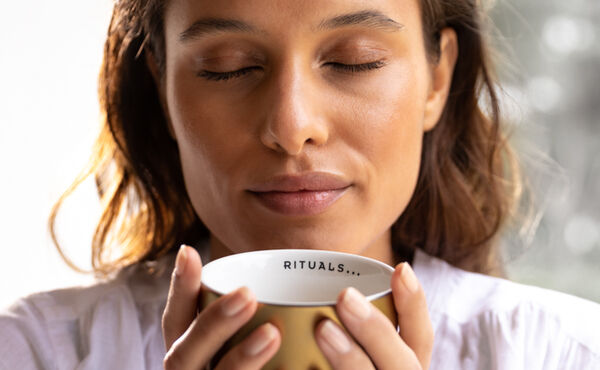If we all had zero waste homes, the world would be a much cleaner, greener place. We look into whether it’s really achievable and how we can cut down.
It’s in the name really – zero waste essentially means creating no waste. With nothing from your home should be going to landfill or high-temperature destruction. If you're already thinking about the amount of bin bags you throw out every week – this can seem like an extremely daunting task. So why should you try?
Why is trying zero waste important?
According to The World Counts, every year globally, we dump a huge 2.12 billion tons of waste. If we put all of this waste on trucks – they would go around the world 24 times. Apart from being an eyesore, taking up a huge amount of space and letting off toxic chemicals, a World Bank study found that landfills create 11% of the world's global methane emissions and have predicted that by 2050 this could increase to 70%. Considering methane is one of the driving forces of climate change and we are in a race to cool down the world’s rising temperature – this needs to change.
How do we achieve zero waste?
Most of us are likely practising ‘zero waste’ habits every day. If you’re using reusable shopping bags, coffee cups and water bottles, great. If you’re buying plastic-free vegetables at markets or thrift shopping for clothes – amazing! However, this is really just the start. A zero waste home should strictly follow five rules:
- Refuse – for example, junk mail or gifts that are not sustainable
- Reduce – actively working to reduce the amount of waste
- Re-use – finding ways to upcycle products
- Recycle – recyling plastic, cans and paper
- Rot – composting food
But is this really possible for everything? Let’s dive deeper.
Rethink your cleaning products
Have a think about all your cleaning products – are they all in plastic containers? Most probably. Plastic is going to be one of the biggest issues in trying to keep to zero waste. According to the EPA, despite our best effort to sort and scrub out our plastic, only 9% of it actually ends up getting recycled. So, thinking about the five rules, recycling should really be at the bottom of the list with priority placed more on how can we reduce and reuse instead.
“You'd be surprised at the cleaning power of everyday items found in your home,” says Carlos Garcia, Managing director of professional cleaning service Total clean. “For instance, vinegar is a fantastic ingredient for making an all-purpose cleaner that is gentle but effective. Simply mix equal parts water and vinegar in a spray bottle and you have a versatile cleaning solution that can be used to clean countertops, sinks, and even windows.” The next time your cleaning spray runs out – save the bottle and try whipping up your own formula.
“Baking soda is another powerful ally in a zero waste home,” says Garcia. “I recommend combining it with a little water to create a paste that's excellent for scrubbing away tough stains on surfaces like bathroom tiles, sinks, or grout, providing a gentle abrasive that works wonders without harsh chemicals.”
Got some lemons or oranges nearing their end? “Squeeze them into a spray bottle filled with water to create a natural glass cleaner. The acidity helps remove streaks and grease and leaves your windows sparkling with a light natural scent that won’t leave you light-headed. You can even place leftover citrus peels in a jar with white vinegar for a few weeks to infuse the vinegar with a pleasant scent, creating a citrus-infused cleaning solution that is perfect for cutting through grease and grime and reduces how much water you send to landfill.”
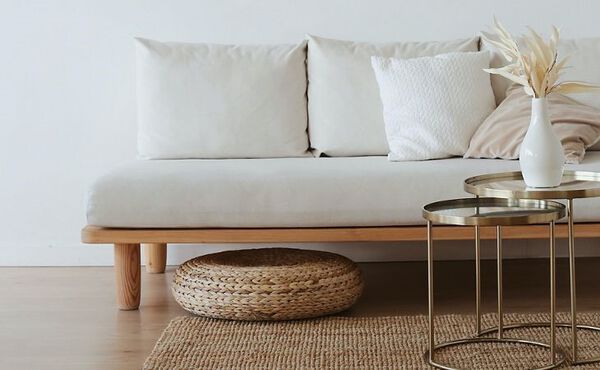
Rethink bathroom and beauty products
When it comes to beauty, people may be less likely to start mixing up their own products at home. One survey found that the average American spends $110 a month on beauty products – with 58% saying they have no plan to cut back in response to inflation either. This just shows how much importance people place on investing in good quality products. When we talk about the possibility of creating a zero waste home, we have to also consider how likely you are to stick with a zero waste habit. Unless you are living on a beach harvesting your own coconuts to lather your body in coconut oil with – there is going to be some waste that comes with self-care – but let’s look at the more sustainable options.
Fortunately, beauty is one of the leading industries for refillable products. In 2022 alone, we saved 802,587 kg in materials through customers opting for our refills. This month, we are launching our Clean Beauty Bars, a new range of (soap-free) solid soaps for face, hair and body. These solid formulas don’t require any plastic packaging and the carton they are packaged in is 100% recyclable.
Top tips for a (nearly) zero-waste bathroom:
- When you turn on the shower and wait for the hot water to flow out, catch the wastewater and re-use it for watering plants or washing your hands. You could save up to 11,000 litres of water a month!
- Opt for a more sustainable toilet roll like who gives a crap. This is made out of recycled office paper and is 100% biodegradable.
- Invest in reusable products like resusble Q-tips and makeup-removing pads. In the long run, this will save on materials (and money!)
Invest in long-lasting products
On the topic of reusable products, there are many options outside of the bathroom and beauty category, too. From silicone stretch covers and beeswax wrap for leftovers to Mooncups and tote bags, there are tons of products that are built to last. This goes for anything really, if you can afford to buy the sturdy wooden broom rather than the cheap plastic alternative always think about the long-term and whether you can find a reusable alternative to single-use products.
Upcycling in the home
It’s estimated that 99% of the things we buy are binned within 6 months. This is an overwhelming statistic, especially considering the kind of treasures that are trashed. “Over 22 million pieces of furniture end up in landfill every year,” says Abi Hugo, interior stylist and upcycling specialist, “but with just a little bit of time and effort (even just a simple paint job), we can make such an impact.”
For innovative ways on how to repurpose your Rituals products, we’ve created a list of ideas here.
Here are Abi’s top tips for upcycling furniture:
- Make sure you give everything a good clean with sugar soap (an industrial cleaner) to get rid of any grease and grime.
- Give it a light sand with 120 grit paper to scuff it up a little and give the paint something to adhere to.
- Use wood filler on any damaged areas (peeled veneer or scratches, etc.)
- Apply a good primer (although I always use a paint that is self-priming to skip the priming step)
- Paint your desired colour (I love that there are places like Community Repaint where you can pick up half-used tins of paint at a very low cost, it’s an amazing way to reduce, reuse and recycle, you can even take your old paint there after you’re finished. See if there is anything like it in your area!)
- Give it a second and third coat, if needed.
- Seal it with a finishing coat or wax to protect it even more.
- Add some new handles, and voila you have a beautifully unique, bespoke and environmentally friendly piece of furniture.
If you don’t have any broken furniture but you’re in need of something new - you can find loads of pieces on sites resale sites or you could even head to the streets and search for a discarded pallet. “With a simple cutting tool (hand saw or a jigsaw) you can cut the wood down,” says Abi. “You’ll want to give it a really good sand as pallet wood tends to be very grainy, so start with a high grit sandpaper like 80 grit and work your way down to a finer grit like 120 or 240. You can then use wood glue, screws and nails and get super creative!”
So, is a zero-waste home really possible? Yes, probably - if you grow your own food to eat, made all your own products and walked everywhere. However, 1) it’s really difficult to weigh up the impact of your actions and 2) that all takes a lot of the time that isn’t always conducive to modern day living. What we can all definitely do is cut down our waste where we can. It’s far better for the majority of us to try and fail, than for only a few of us to succeed.



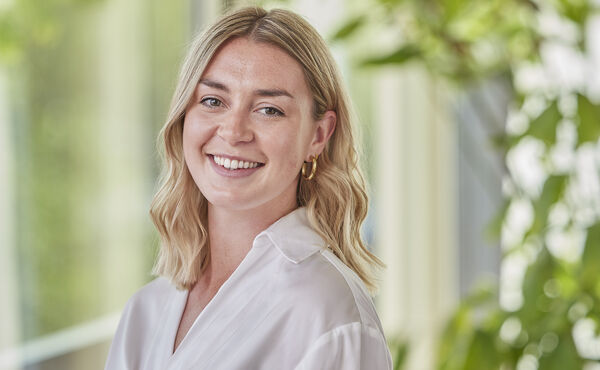
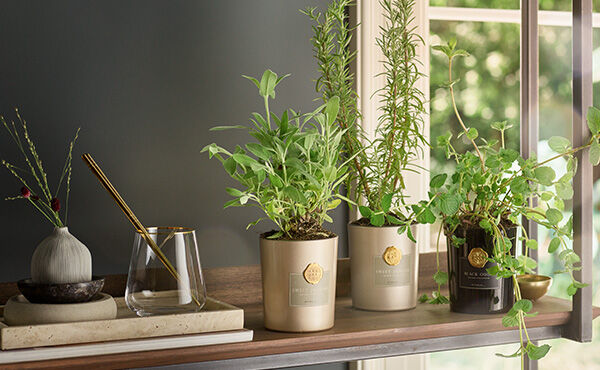
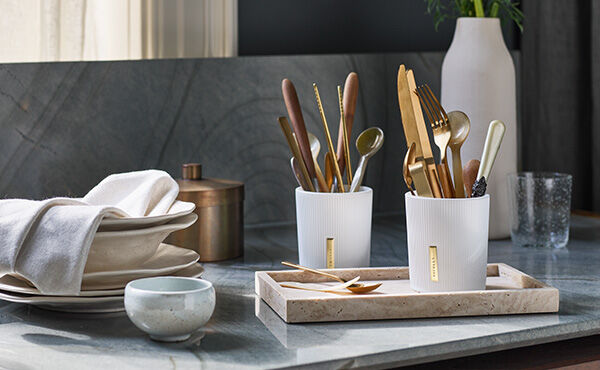
.jpg?sw=600&sh=370&sm=fit&cx=0&cy=0&cw=600&ch=370&sfrm=jpg)
